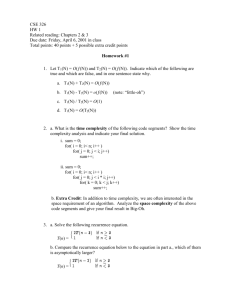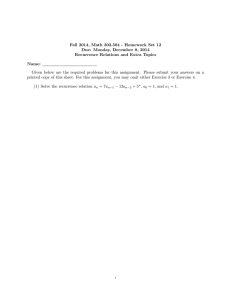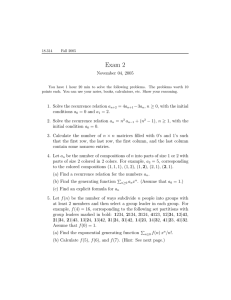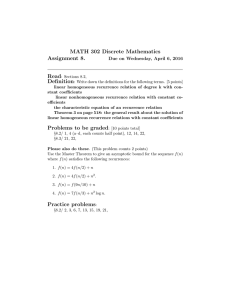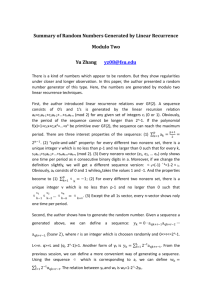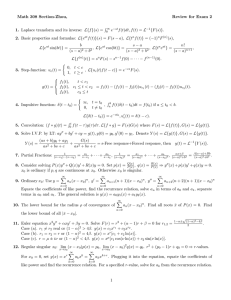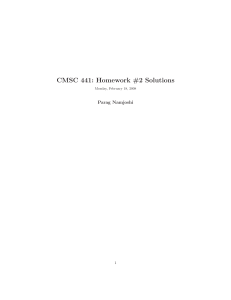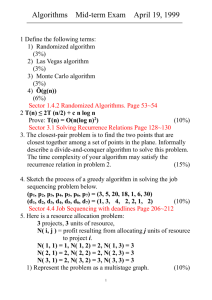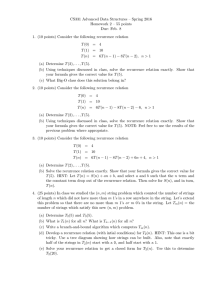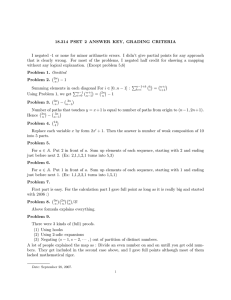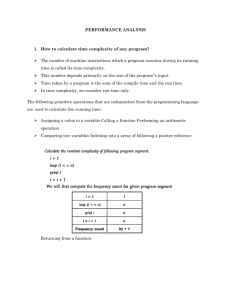Review of Random Number Generated by Linear Recurrence
advertisement
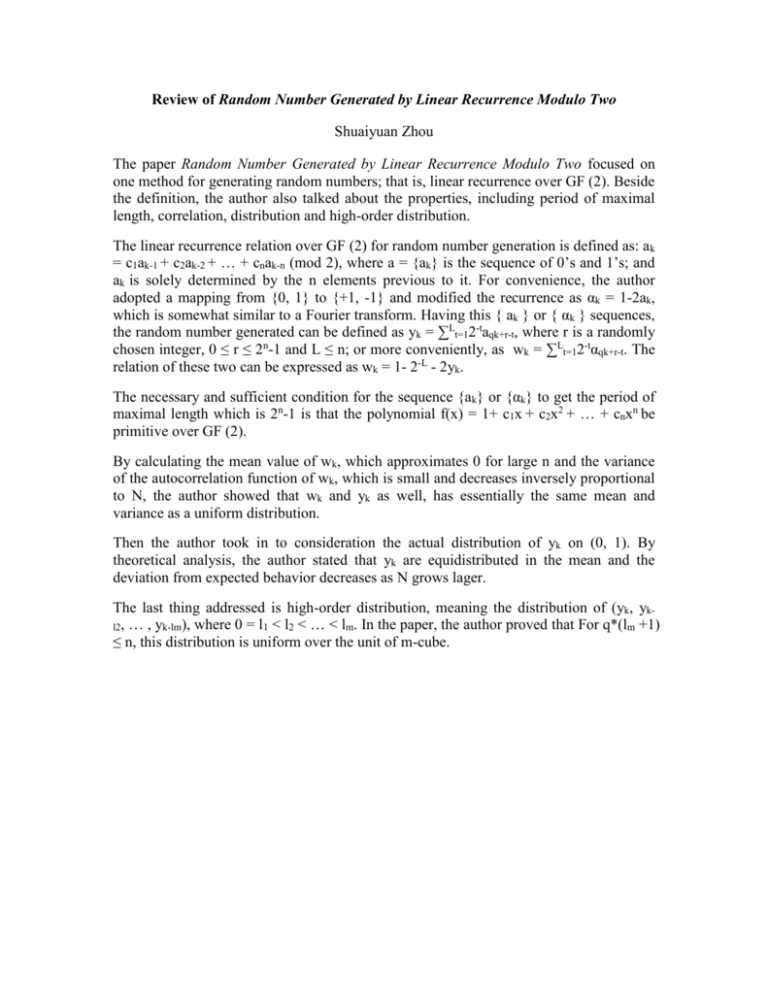
Review of Random Number Generated by Linear Recurrence Modulo Two
Shuaiyuan Zhou
The paper Random Number Generated by Linear Recurrence Modulo Two focused on
one method for generating random numbers; that is, linear recurrence over GF (2). Beside
the definition, the author also talked about the properties, including period of maximal
length, correlation, distribution and high-order distribution.
The linear recurrence relation over GF (2) for random number generation is defined as: ak
= c1ak-1 + c2ak-2 + … + cnak-n (mod 2), where a = {ak} is the sequence of 0’s and 1’s; and
ak is solely determined by the n elements previous to it. For convenience, the author
adopted a mapping from {0, 1} to {+1, -1} and modified the recurrence as αk = 1-2ak,
which is somewhat similar to a Fourier transform. Having this { ak } or { αk } sequences,
the random number generated can be defined as yk = ∑Lt=12-taqk+r-t, where r is a randomly
chosen integer, 0 ≤ r ≤ 2n-1 and L ≤ n; or more conveniently, as wk = ∑Lt=12-tαqk+r-t. The
relation of these two can be expressed as wk = 1- 2-L - 2yk.
The necessary and sufficient condition for the sequence {ak} or {αk} to get the period of
maximal length which is 2n-1 is that the polynomial f(x) = 1+ c1x + c2x2 + … + cnxn be
primitive over GF (2).
By calculating the mean value of wk, which approximates 0 for large n and the variance
of the autocorrelation function of wk, which is small and decreases inversely proportional
to N, the author showed that wk and yk as well, has essentially the same mean and
variance as a uniform distribution.
Then the author took in to consideration the actual distribution of yk on (0, 1). By
theoretical analysis, the author stated that yk are equidistributed in the mean and the
deviation from expected behavior decreases as N grows lager.
The last thing addressed is high-order distribution, meaning the distribution of (yk, ykl2, … , yk-lm), where 0 = l1 < l2 < … < lm. In the paper, the author proved that For q*(lm +1)
≤ n, this distribution is uniform over the unit of m-cube.
